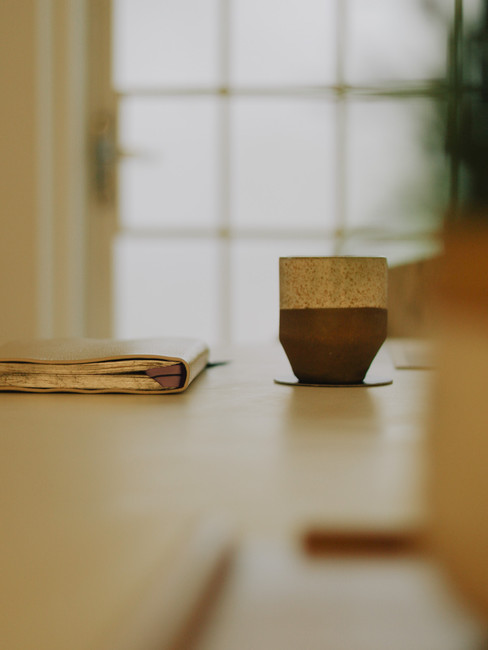In an increasingly fast-paced world, where frenetic routines often prevent us from stopping and breathing, the Fika tradition becomes an approach that values the importance of breaks to promote new perspectives and a more productive and creative work environment. In a conversation with our founder Caroline Strobel, we explored how this Swedish ritual influenced her journey and how she applied these principles to her consulting approach.

What exactly is Fika and how did you discover it?
Fika is a Swedish tradition that involves taking breaks for coffee or tea, and simply disconnecting from work-related activities. I discovered this tradition while doing my master's degree in marketing in London, where I had the opportunity to interact with people from various parts of the world, including Nordic countries, who greatly value Fika as part of their lifestyle.
I noticed in everyday practice how this brief breather during projects led to less obvious solutions, only to later discover that there are many studies proving the effectiveness of breaks.
How important are breaks and Fika in the workplace?
Fika breaks are essential to oxygenate thoughts. I believe that when we disconnect from the challenge in hands, even for a few minutes, our brain continues to work unconsciously. It's in this space that we make unexpected connections, and come up with original ideas. In the workplace, this is crucial for boosting energy and creativity. Fika teaches us that by taking a few minutes for quiet time, we can return to our tasks with fresh ideas and a clearer perspective to generate solutions.
And how do they practice Fika within the consultancy service?
Mainly, In two ways: first, whenever we feel that a certain project needs a new perspective, we invite renowned specialists to collaborate with us, or change focus to return to it later with a fresh mind. Second, we set aside time for research and experimentation. At this moment we can promote an exchange of ideas, learn about a topic that contributes to our projects, analyze trends, in addition to investigating references from different segments and markets around the world. Later, this repertoire will be useful for our brainstorming sessions.
How has the Scandinavian lifestyle influenced your approach to work?
When I visited friends in Norway, I was able to experience the Scandinavian way of life, which emphasizes the importance of feeling happy both at work and in our personal lives. This made me realize that work not only can but should be enjoyable. From there, we created work methodologies that make our processes lighter for us and our clients, optimizing schedules and resources, avoiding unnecessary meetings and, of course, always seeking to present solutions instead of problems.

How did the idea of founding FIKA Marketing arise?
After returning from England, I worked in strategy at a global agency. It was an enriching experience, but I realized that the traditional format did not align with my belief in deepening my understanding of client needs and investing in creative solutions. Time was limited and the teams had little space to specialize, which is mandatory when it comes to high-end brands, for example. It was then that FIKA Marketing was born, with the aim of being a boutique consultancy. We like to focus on market research that brings in-depth investigations before outlining the brand strategy and creating design projects. Our clients tend to be high-end brands that value quality and aesthetic care.
How does FIKA differentiate itself in its consultancy approach?
At FIKA, we become truly involved in our clients' businesses, seeking to understand the details behind their companies. This allows us to create customized strategies, plans, branding and even develop in-company dynamics and workshops with teams seeking to optimize problem solving. We are always looking for opportunities to make a difference and add value to our projects.
✱
Photographs by Brenda Pontes and Tarcila Zanatta © All rights reserved. To share ideas or talk about your project, get it touch.




Comments